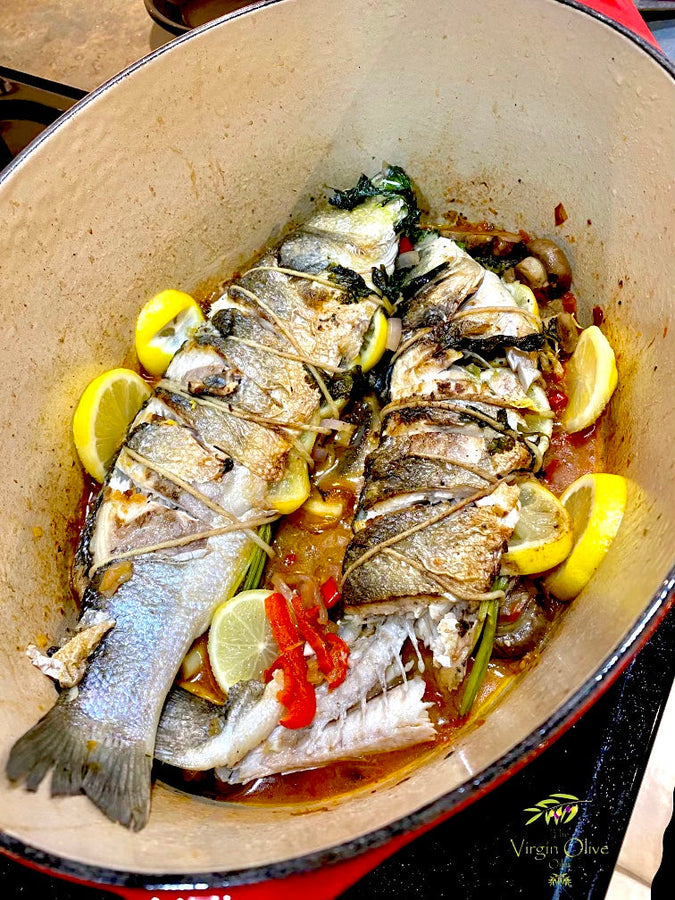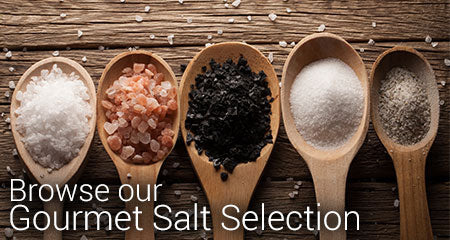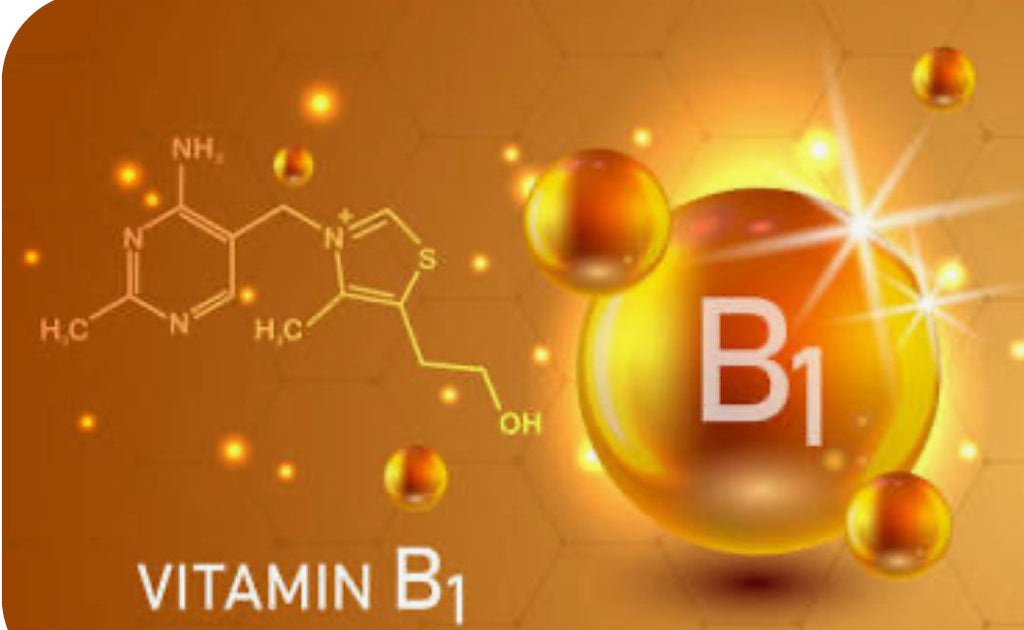Boost Your Mental Health with EVOO - Blog #36

Hi Everyone! Welcome back to another Friday blog. May is just around the corner! Since May is Mental Health Awareness month, I wanted to address this ever-pressing issue. Mental Health is defined as “a person’s condition with regard to their psychological and emotional well-being. Good mental health is characterised by a person's ability to fulfill a number of key functions and activities, including: the ability to learn, the ability to feel, express and manage a range of positive and negative emotions, the ability to form and maintain good relationships with others.” So, good mental health is not just the absence of mental illness, but our ability to cope with and manage what is dealt us.
Since the Pandemic, many of us are more fatigued than usual, more tired, irritated, overwhelmed, lonely, sad, depressed, stressed about jobs, money, our health and wellbeing. All these things can affect our mental health and be manifested in different ways. **check out Blog # 45 on Depression and Anxiety.** Recognizing (and acting on) key signs and symptoms early before they can make us sick and cause havoc in our lives is paramount.
- Excessive paranoia, worry, or anxiety.
- Long-lasting sadness or irritability.
- Extreme changes in moods.
- Social withdrawal.
- Dramatic changes in eating or sleeping pattern
Like many other health issues there is a range. Are you experiencing any of these issues? Not at all, sometimes, a lot? More than normal? How much more? Do you recognize any of these symptoms in your loved ones? Mental Health is a subject people don’t like or are afraid to talk about. Under stressful conditions, someone with a borderline psychotic disorder may develop psychotic-like symptoms. And... if you need help, do you know you need help? Hmmm...Let’s look at the U.S. statistics:
- About 20% of children and adolescents are affected by mental health disorders during their lifetime. SERIOUSLY?!!!!
- About 17% of adults are considered to be in a state of optimal mental health. THAT EXPLAINS A LOT!🤣
- About 26% of adults are living with a mental health disorder in any given year, and 46% will have a mental health disorder over the course of their lifetime. HOLY MOLY!!!
- 1/3 of older adults die with Alzheimer’s or related dementias. VERY SCARY!!
What about PTSD?
- About 7 or 8 out of every 100 people (or 7-8% of the population) will have PTSD at some point in their lives.
- About 8 million adults have PTSD during a given year. This is only a small portion of those who have gone through a trauma.
- About 10 of every 100 women (or 10%) develop PTSD sometime in their lives compared with about 4 of every 100 men (or 4%).
- Post-Covid Stress Disorder Since China was the first country to deal with the pandemic, much of the current research on this subject is from China. “A web-based, cross-sectional survey of more than 7000 Chinese individuals in February 2020 found that health care workers had the highest rate of poor sleep, and those aged 35 years or younger had more mood and anxiety symptoms. Overall, 35.1% of respondents reported anxiety symptoms, 20.0% depressive symptoms, and 18.2% poor sleep quality.”
So, what can we do to take care of our mental health?
-sleep - guard your sleep!! This is when our brain’s cleaning system is actively removing amyloid and harmful proteins that destroy memory and lead to Alzheimer’s! This portion of the brain lymphatic system is being termed “glymphatic system” (due to glial cells). “The glymphatic system is like a ‘dishwasher’ for the brain. When we sleep, the brain cells actually become smaller, forcing more fluid out through the glymphatic vessels.” “Sufficient sleep, especially REM sleep, facilitates the brain’s processing of emotional information. During sleep, the brain works to evaluate and remember thoughts and memories, and it appears that a lack of sleep is especially harmful to the consolidation of positive emotional content. This can influence mood and emotional reactivity and is tied to mental health disorders and their severity, including the risk of suicidal ideas or behaviors3.” **check out blog #30 on sleep**
-mindful meditation - increases blood flow, decreases cortisol production!! According to the Mayo Clinic, “Mindfulness meditation is based on being mindful, or having an increased awareness and acceptance of living in the present moment. In mindfulness meditation, you broaden your conscious awareness. You focus on what you experience during meditation, such as the flow of your breath. You can observe your thoughts and emotions, but let them pass without judgment.”
Our minds are constantly producing thoughts, emotions and urges, which lead to decisions, actions and reactions. We go about our day mostly on autopilot – if “x” happens, we do “y.” If someone says “this,” we respond with “that.” “Mindfulness and meditation help you develop the skill of observing your thoughts, emotions, and urges without getting caught up in them. When you are able to watch the activity of your mind from a neutral perspective, you can choose where to focus your attention. At that point, your mind becomes a tool: you use what you need, and let what you don’t need pass by.”
Studies show Mindfulness Meditation can help decrease stress, blood pressure, cognitive decline, cell aging, chronic pain, improve immune response and sleep as well as many other benefits. Researchers from Harvard looked at 16 subjects meditating 27 min/day for 8 weeks. “When the two months were up, the researchers observed that the regions of the brain associated with memory, learning, emotion control, self-awareness and perspective increased in volume.”They stated that with consistent meditation, a “restructuring” occurs in the brain. “Cognitive scientist Dr. Amishi Jha’s research found that in a sample of U.S. Marines preparing for deployment, meditation sessions as brief as 12 minutes produced cognitive improvements. A 2018 study found that 12 minutes a day of Kirtan Kriya meditation was sufficient to produce significant positive changes in predictors of dementia found in the blood. A third study found that 10 minutes of daily meditation improved GRE test performance in undergraduate students.” **not for everyone** It can have negative side effects in some people. A 2017 study from Brown University looked at 60 Buddhist practitioners and meditators. They found 88% of participants had negative side effects that bled over into their lives beyond a meditation retreat, and lasted a median of 1-3 years.
-nutrition - give your body the tools to heal! Your body has the ability to build almost everything it needs to operate and heal itself, if you provide the right ingredients!!! If you have gut issues, it can absolutely affect your brain. Clean up your diet! Eat the rainbow of veggies and fruits. Make sure you get magnesium, zinc, vitamin D3 and Omega 3s. Eat nuts and seeds! Include HP-EVOO (high polyphenol extra virgin olive oil) actually stimulates a lipoprotein called Apo A-IV whose job it is to inhibit lipoprotein oxidation!! While we sleep this lipoprotein goes to work in our liver and intestines. It literally binds harmful substances preventing blood clots, atherosclerosis and cardiovascular events. Not only does EVOO stimulate this protective protein, but EVOO as we well know now decreases inflammation, calms the pace of the heart, balances blood sugar, helps our body to relax and gently fall into a restful sleep. It also crosses the BBB (blood brain barrier) and goes to work to prevent aggregation of amyloid-B proteins that cause Alzheimer’s and dementias. **Check out blog #34 on Alzheimer’s**
A study was done comparing coconut oil, butter and EVOO on Alzheimer mouse model. “Our findings suggest that EVOO has beneficial effects on learning and memory deficits found in aging and diseases, such as those related to the overproduction of amyloid-β protein, by reversing oxidative damage in the brain, effects that are augmented with increasing concentrations of polyphenols in EVOO.” A new review May 2021 demonstrates that consumption of high polyphenol EVOO is vital in the function and prevention of disease in many areas of the body. 

Our brain is 60% fat! Eat fatty fish such as salmon, trout or sardines to get your Omega 3’s! Include chia seeds, ground flax and hemp hearts to salads and smoothies. Multiple studies have revealed the benefits to the neurological system with Omega 3 fatty acids. They are crucial in formation of the myelin sheath surrounding nerves and in nerve conduction. A 2012 study published in the Journal of Neuroscience, revealed supplementation with Omega 3 fatty acids (ALA, DHA, EPA) help heal damaged peripheral nerves. DHA is the most abundant fatty acid in the brain and nerve cell structure and function. “Omega 3s can also help reduce the development and symptoms of anxiety. Studies even show that adequate levels of EPA are associated with protection against post-traumatic stress disorder (PTSD).”

**Don’t forget to eat wild caught!** farmed fish are fed a fattier and less healthy diet than wild caught choose to eat. Take a look at the comparison:

**Take a look at the calories and the Omega 6 levels in farmed!! Holy moly! According to studies published by the NIH, “Western diets are deficient in omega-3 fatty acids, and have excessive amounts of omega-6 fatty acids compared with the diet on which human beings evolved and their genetic patterns were established. Excessive amounts of omega-6 polyunsaturated fatty acids (PUFA) and a very high omega-6/omega-3 ratio, as is found in today's Western diets, promote the pathogenesis of many diseases, including cardiovascular disease, cancer, and inflammatory and autoimmune diseases, whereas increased levels of omega-3 PUFA (a low omega-6/omega-3 ratio) exert suppressive effects.”
Okay, let’s recap. Our brain and mental wellbeing is of utmost importance for the rest of our body to work properly. Getting the required rest to heal and keep the brain in tip top shape can be difficult as we get older. Take steps to achieve good sleep, such as exercising earlier in the day, eating a lighter dinner, maybe even having a sleepy time herbal tea or reading a book to relax to get your body ready for sleep. Don’t forget to turn off the lights, especially blue light. When it comes to mindfulness, we need to understand that we can train ourselves to take in information, analyze it, decide what action should be taken before blindly reacting. Lastly, nutrition is imperative. When it comes to mental health, the anti-inflammatory effects of EVOO’s polyphenols and high oleic acid makes it the perfect brain food. Add EVOO to fatty fish and you have a winning combo for mental health. When you do a job, the right supplies and tools get the job done correctly and quickly. Your body is no different. The studies show EVOO and Omega 3s work together to help keep our brain and nervous system working properly.
So, until next time my friends, heal your gut and fix your brain! Drink, Drizzle, Digest HP-EVOO 2-4T daily, eat the rainbow of veggies and fruits organic or wild-sourced, eat wild-caught, pasture-raised, grass-fed, get plenty of sunshine + supplement magnesium, zinc and vitamin D3, get your trace minerals and electrolytes with good sea salt *Himalayan was formed before plastics, eat foods high in lutein, drink 1/2 your body weight in oz of water, get a good pre/probiotic, eat some adaptogens and methylation donors (kale, lion’s mane…) to detox, enhance overall health and reverse aging and disease, exercise your body and mind, add a few minutes of mindful meditation to your day to combat stress, remove EMF (electromagnetic frequency) devices and blue light, use IR (infrared) from candles, fire or incandescent lights in the evening to enhance sleep and...turn off the light!! #HP-EVOO
This blog is intended for informational purposes only. Discuss strategies with your Healthcare Practitioner.







Comments (1)
What a lot of good information! Your blogs have helped me be so much healthier! Thank you!!!.